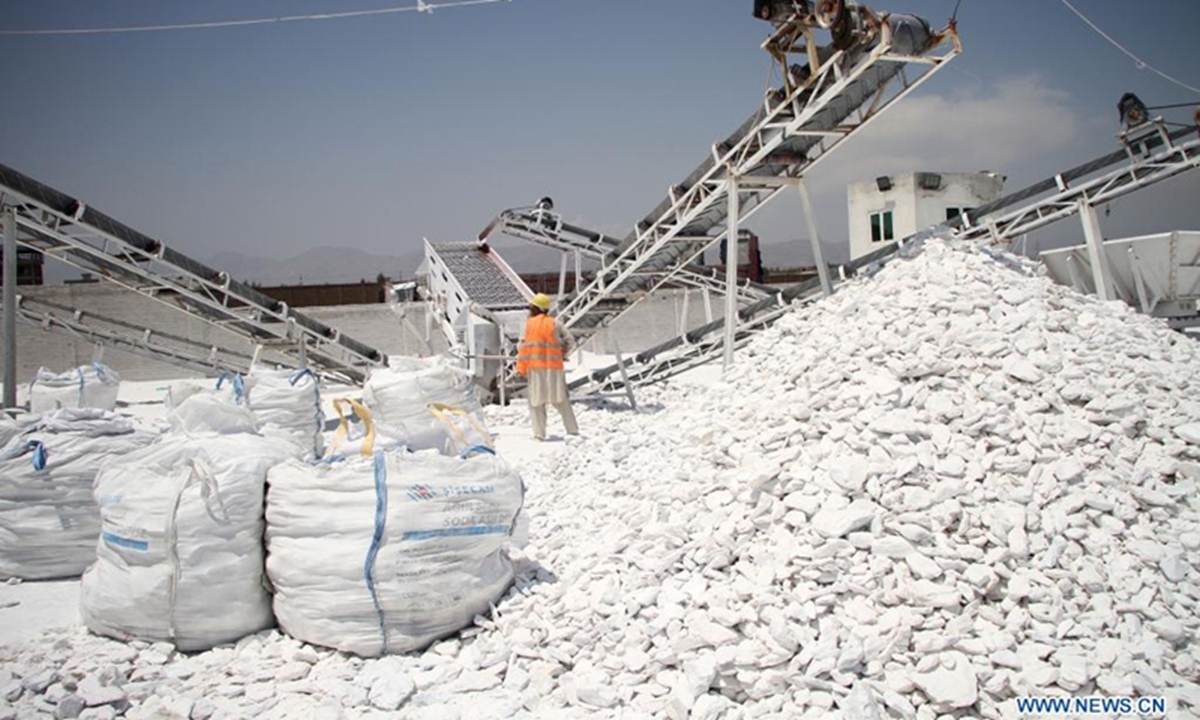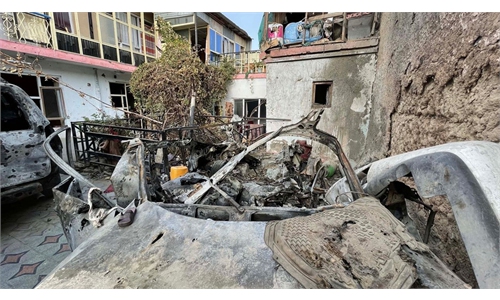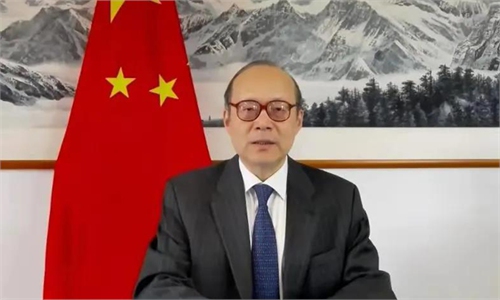COMMENTS / EXPERT ASSESSMENT
Investment in Afghan mineral sector faces risks

File photo: Xinhua
The Afghan Taliban has established a new interim government. The next test for them is how to lead war-torn Afghanistan out of economic difficulties and diplomatic isolation. Can Afghanistan's rich mineral resources help the Taliban rebuild the country?Afghanistan is indeed rich in mineral resources, but the country's economy remains underdeveloped. The Taliban has welcomed the international community to invest in Afghanistan, especially in mineral resources. Western media outlets have also begun to hype the huge value of Afghanistan's mineral resources, attracting the interest of foreign companies, including some Chinese companies. But at present, it is difficult for the mining sector to become the pillar of Afghanistan's economy.
For starters, the current situation in Afghanistan still has a lot of uncertainty. The anti-Taliban forces in Afghanistan have not been completely wiped out, and the possibility of their growth in the future cannot be ruled out. Therefore, current investments in Afghan minerals still face risks of regime change or sabotage.
Second, the value of minerals in Afghanistan has been exaggerated. Up to now, there have been many different sets of data about the value of minerals in Afghanistan. Among them, the US investigation during the war in Afghanistan is considered to be the closest to the actual situation, which shows Afghanistan's mineral resources are valued at $1 trillion. But according to estimates by the Ministry of Mines and Petroleum of Afghanistan, Afghanistan's minerals are worth $3 trillion, including 2.2 billion tons of iron ore, 1.3 billion tons of marble, nearly 30 million tons of copper, 1.4 million tons of rare-earth minerals and 2,700 kilograms of gold. Western media claims that Afghanistan has tens of trillions of dollars-worth of minerals are also questionable.
Moreover, some of Afghanistan's mineral resources have already been acquired. For instance, a Chinese company won the bid for the Aynak Copper Mine in Logar Province in 2008, and an Indian company won the bid for the Hajigak iron mine in Bamyan Province in 2011. Although there have been some problems in the development of these two mining areas, they are still within the contract period.
Afghanistan's severely backward infrastructure is another important factor affecting its attractiveness to foreign investment. Due to more than four decades of continuous war and turmoil, Afghanistan's infrastructure lags far behind. Mountainous areas make up nearly 60 percent of Afghanistan's land area. Most of the minerals are located in mountainous areas that are extremely inconvenient for transportation, and there is scarcely any available infrastructure. This means companies would need to participate in the construction of infrastructure in the mining of mineral resources in Afghanistan, which would greatly increase their costs.
Complex national conditions in Afghanistan will also discourage international investors, as it is difficult to handle the various complex relationships. Basically, the investment experience in other countries in the world cannot be directly applied to Afghanistan.
The complex international public opinion environment could also increase the difficulty of investing in mining in Afghanistan. In 2015, a documentary named Saving Mes Aynak claimed a Chinese mining company's activities "threaten an ancient site" in the country, which caused a lot of problems for the company. If foreign investors, especially Chinese companies, invest in minerals in Afghanistan, they could face a similar situation.
Foreign companies currently investing in Afghanistan may also face the risk of potential international sanctions. Although the Afghan Taliban is not listed as a terrorist organization by the United Nations and the US, some members of the Taliban and the "Haqqani Network" are designated on the sanctions list. Moreover, Russia and some Central Asian countries clearly list the Taliban as a terrorist organization. Therefore, investing in minerals in Afghanistan is likely to encounter sanctions imposed by the US' long-arm jurisdiction, and may also lead to sanctions from other countries.
Therefore, foreign companies participating in mineral investment in Afghanistan face a series of risks, which may affect their investment enthusiasm. It is also difficult to convert Afghanistan's mineral resources into a source of revenue. Due to financial difficulties, what the Taliban currently needs is fast money, but mineral exploitation is usually a long-term process. It cannot solve the Taliban's most urgent needs.
The author is a professor with the Research Center for Afghanistan and the Belt and Road Research Center at China's Lanzhou University. bizopinion@globaltimes.com.cn



